Judging by the number of times I talked about vegetable oils and recommended its use over the use of mineral oil, you know that they have an important role in achieving and maintaining healthy hair. However, not all oils are the same they will either be penetrating or sealing oils. Do you know which oils are which and why? Find out why you can accomplish better results when you know which oils to use.
What Are They & Why Are They Good
Vegetable oils are extracted from the seeds of plants to produce a viscous, lubricating liquid mainly composed of triglycerides. The list is extensive and there are many different oils such as coconut oil, olive oil, sesame oil, almond oil, macadamia oil, cocoa butter, shea butter or argan oil.
The use of vegetable oils in your hair is beneficial not only for the outer structure of the hair, the cuticle layers but also for its inner structure, the cortex (read this post to know more about hair structure). The cuticle layers of the hair can be easily damaged by manipulation, styling tools, chemical treatments or environmental factors. Applying oils to the hair will seal the hair and help to prevent and protect it from these damaging effects.
Other positive effects include added shine, hair lubrication which facilitates the detangling process and lessens a number of tangles in your hair, a decreased number of split ends and less hair friction. If, however, you are not as excited as I am by these attractive features, then I believe you will quickly change your mind.
Having beautiful hair on the outside is nice, but if this beauty is not a reflection of inner health then it will be short lived. Healthy hair demands a healthy cortex! This is the largest/thickest component of the hair and it’s also the cortex that provides the hair with its strength and elasticity. When oil is applied to the hair it is essentially reinforcing these characteristics. Oils will give your curly hair its bounce, they increase its tensile properties. In other words, your hair when stretched will be able to sustain tension and go back to its original shape without breaking or losing form. However, not all oils are the same.
Not All Oils Are Alike
Different oils have different molecular structures. For us to know which oils are penetrating or sealing the hair, we need to know the triglyceride and fatty acid content of an oil. The is where the information can become a little, to say the least, scientific, technical and wordy and because I am not training you to be little Einsteins I’ll try to make this as simple as possible.
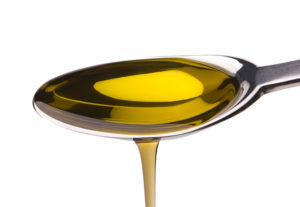
The molecular structure of vegetable oils is composed of glycerol (triglycerides) which has three carbon atoms, and fatty acids which have long chains of carbon atoms. The shorter the fatty acid chain of an oil is (less than 20 carbon atom chains), the bigger its penetrating ability is.
Moreover, according to a study about the penetrating abilities of oils in human hair, it seems that some oils with short carbon chains have a positive charge interacting with the proteins inside the cortex. Meaning that these oils will penetrate the hair to bond with those proteins. The study also states that monounsaturated oils penetrate into the hair shaft better than polyunsaturated oils because of their compact molecular structure and slight positive charge.
Penetrating Oils or Sealing Oils?
Now you know why some oils penetrate the hair shaft and others just stay on top. If you’re thinking “I could probably do without the chemistry lesson”, let me tell you this was the short version of a very lengthy lesson. As an example, coconut oil or olive oil are oils that penetrate the hair. Castor Oil or sweet almond oil are sealing oils and create a film around the hair strand.
Here’s a PDF list of +25 penetrating and sealing oils you can download and keep for future reference. Enjoy it!
Moving on, according to findings from this study, oils that can penetrate the hair shaft also leave a thin protective film over the cuticle layers. This means they also seal your hair, but they thin down throughout the day and disappear/soak in. You should also know that oils like coconut oil, olive oil, sunflower oil or avocado oil sink into the hair easier when heat is applied. So if you want to achieve better results when using them grab your hooded dryer, hair dryer or heat them in your microwave and know that you’re doing the best for your hair.
Whether you choose a penetrating or sealing oil, it depends on your hair and what you want to achieve. In essence, all oils help to condition hair, they are good moisturisers even though they don’t have any water in them. In fact, they are hydrophobic, meaning that they repel, they don’t mix with water. What they are good at is in reducing water evaporation from inside the hair or in dry climates either by penetrating or sealing your hair. This is good because natural hair is thirsty for water, we need all we can get.
When To Use Your Oils
Pre-Poo – I’ve talked about pre-pooing and even said it is a practice (oil pre-poo) in my hair regimen that prevented my weak relaxed hair from breaking heavily at the line of demarcation. This will protect your hair from shampoos that strip the natural oils from your hair. I believe this is the best time to use penetrating oils because they will protect the cortex of the hair. Coconut oil is proven to reduce protein loss and protect from hygral fatigue, but you can choose another oil.
Oil rinse – Again, for greater results, use penetrating oils such as coconut oil, avocado oil, extra virgin olive oil or
 any other penetrating oil. Do this while you wash your hair it will add moisture retention, facilitate detangling, reduce frizz and single strand knots.
any other penetrating oil. Do this while you wash your hair it will add moisture retention, facilitate detangling, reduce frizz and single strand knots.
Deep Condition – Do your own oil mix for you homemade recipes or for your store-bought deep conditioners. Because you are trying to nourish your hair use oils that have the ability to penetrate through the cuticle layers and into the cortex.
Seal Hair – Use sealing oils to lock in the moisture after you have washed and moisturised your hair, when you want to protect the ends of your hair, or when you want some shine. You can also use it to avoid tangles or hair friction that can damage hair cuticles and cause split ends and holes in the hair shaft. Read this post to know more about sealing your hair.
Frizz Control – Use a sealing oil if you which to control your frizz or flyaway hair. You can also use an oil that penetrates and seal at the same time such as grapeseed oil or argan oil. However, these leave a lighter protective film than a sealing oil.
There are many situations in which you will want to use oils and if you don’t know which ones to use ask yourself this:
“Do you want to protect and strengthen the cortex of your hair from washing, styling tools, chemical treatments and the environment? Or, do you just want to seal in the moisture inside and avoid rapid evaporation?”
If you said yes to the first you will want to use penetrating oils, and if you said yes to the second use sealing oils. However, if you don’t know or maybe it’s a mixture a both, use penetrating and sealing oils, either in an oil mix or by doing a pre-poo/oil rinse and then locking in the moisture.
Note: If you have fine hair you may not like a heavy oil like castor or olive oil because they tend to weigh down your hair or/and make it greasy. On the other hand, coarser hair, high porosity hair, chemically treated or damaged hair may love them.
I hope you found this post useful. Don’t forget to download your Free PDF List.
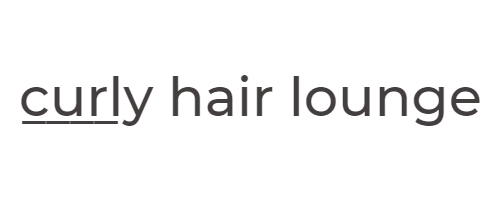
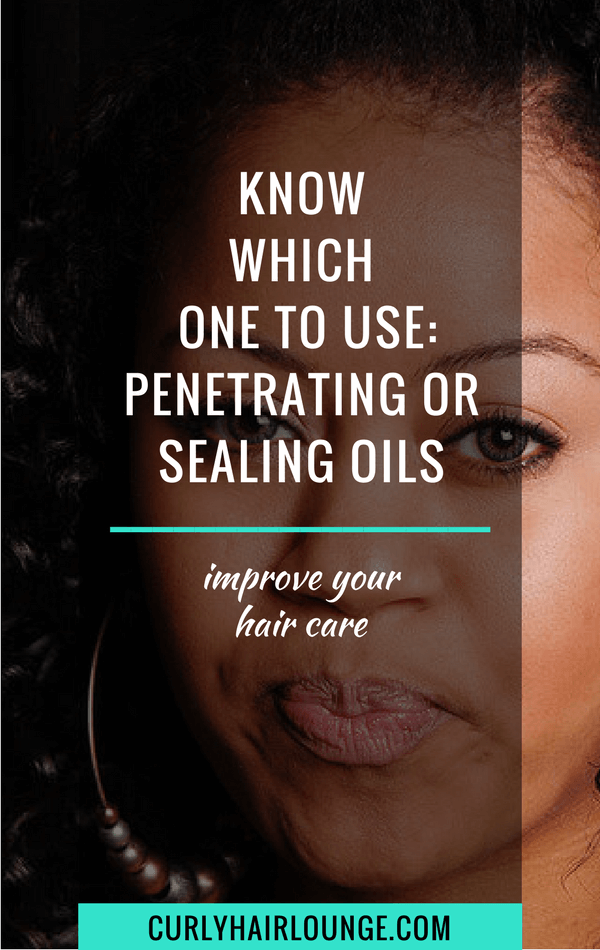
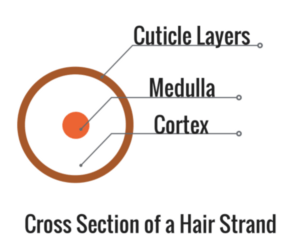
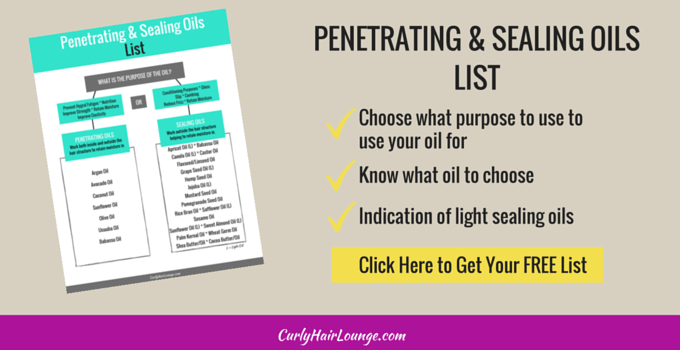
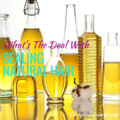
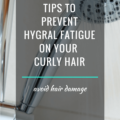
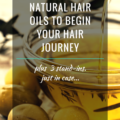
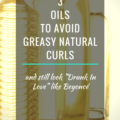
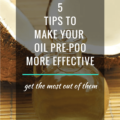
48 thoughts on “Know Which One To Use Penetrating Or Sealing Oils”
Very informative, maybe a couple more bullet points to make it seem less like a paper! But all in all it looks a flows great!
Thanks Tyler!
Hello Monica,
Again, another great article.
I knew you could use most oils on your hair but I did not know which kind worked best for each hair type. My preferred method is Olive Oil but I am going to try Coconut Oil as well. I have dry,treated and frizzy hair.
Thanks so much for sharing.
Hello Mary,
I’m glad the info was helpful. Olive oil is good, but coconut oil is a better choice specially if you had chemical treatments on your hair. It will penetrate your hair, keep it hydrated and strengthen it.
It is great to know the difference between Vegetable oil and Mineral oil. I much prefer vegetable oil as it has more benefit and you mention it right.
Sometime, we have to pay close attention to our hair treatment carefully.
Thanks for sharing your insight here. It is very informative!
Cheers,
Edy
Hello Edy, vegetable oils are always a healthier option for your hair. Thank you for your feedback.
I was looking for something which I can use to control Frizz. Now I know grapeseed oil or argan oil is the answer. Thanks for sharing this article.
You’re welcome Demi!
Before I started working on having natural hair, I found out about Argan oil. My hair is high porosity, fine with maybe 3C on top and sides and 4C in the back. I just used Argan oil on my hair and it was fabulous for my hair. It left it shiny, absorbed quickly with no greasy feel, and full of body. Now, since I have been doing my natural hair regime. My porosity is still high but the back of my hair which was 4C is now maybe 4A and has more curl definition. I also flat braid my hair and at night I put Almond Oil on my twists. On the 3rd day, I take my twists down and lightly mist them with Aloe Vera Oil (mixed with water) and reapply my Almond Oil to individual sections of my hair. For some reason, my hair does not like coconut oil – leaves it hard, more frizzy, and makes my scalp itch. But the almond oil is the bomb! I still have a while to go before I get everything together but now with my flat twists I get perfect curl definition (even in the back) and do not have any frizz that is noticeable. One more thing in order to elongate the length of my curls and have less frizz, I tie my hair up with a silk scarf, then put a stocking cap on it. Doing this also straightens out my edges. Just my two cents. 🙂
Wow, great tips you’re sharing Pamela.Thank You! 🙂
Urghhh!! I have this problem everyday!! I struggle day in and day out with my curly hair, and what sort of serums and oils I should put into it!
Thanks for the share!
Cheers!
Hello Brooke, thanks! I hope this article has brought you some clarity as to what sort of oils you need to get the results you want.
Monica, I’m having the hardest time trying to download the PDF list of sealing and penetrating oils that you have on your site. Can you please help me with this? I have no idea how to get to it.
Hi Jamie,
To access the PDF list you have to sign up for it. Once you do this you will get access to the free PDF and others. Have you signed up? Check your emails (don’t forget to check the spam folder).
So do I still have to use to different types of oils? A sealant and a penetrating? Because my haor is really drunk I need to.oil it everday
Hi, Cheryl!
You should use penetrating or sealing oils depending on what you want to accomplish and your hair needs. As for using different types of oils, no, you don’t need to use different types. Assess you hair needs. Does your hair dry quickly after you moisturise and apply your oil? If you’re using a penetrating oil you may need to change it and use a thicker oil, one whose protective film around the hair strand is thicker like olive oil. Or maybe you just need a sealing oil like grapeseed oil to help keep the moisture in for longer. During my transition, I alternated my LOC method with olive or grapeseed oil. Now, I like using coconut oil (penetrating) because it strengthens my hair and is lighter. Alternatively, you can also make your own oil mix with penetrating and sealing oils and see how it goes.
What do mean when you say “drunk”? Do you mean dry? If your hair is dry and you feel you need to oil it every day then I need to ask you if you moisturise your hair before you apply your oil? If you’re not doing this then you are promoting more dryness. The oil will prevent/block any moisture from getting in your hair. Just as oils block moisture from getting out of your hair and help keep dryness away, they can also block it from getting in and make your hair dry. Moreover, know that even if you use your oils correctly to keep the moisture in, the moisture will eventually evaporate and you will need to supply your hair with more.
Also, check to see if you have high or low porosity hair. High porosity hair can drink and get drunk on moisture and still feel dry while low porosity hair can have a hard time getting moisture in. In this case, read this article to know more about it and this one to know how to address hair porosity.
I hope this answers your question, if not, reply to this message here or on facebook. Maybe we can go over your regimen and see what could be wrong. Oh, also check this post, it will help you build a hair regimen.
All the best,
Monica
Thanks for the detailed review. It was really helpful.
Thank you James! 🙂
Monica
It will depend. Personnaly i hate using penetrating oil for oil rinse. they don’t give me the needed. I really like castor oil for my oil rinse. I love using penetrating oils for prepoo, leave in, deep treatment or as a serum.
Yes, Nadege, you can use whatever oil (penetrating or sealing) oil you like. It’s great you discovered you get more out of sealing oils. I personally feel heavy oils like castor oil will block will block whatever comes next, like your moisturiser, even though much of it is rinsed off. But this is probably the effects of my low porosity hair. Still, I prefer doing oil pre-poos.
Monica
is castor oil penetrating or sealing .I colour my hair red and wondered if caster oil would be a good hair treatment without stripping the colour which coconut oil does
Castor oil is a sealing oil, Ruth.
Hi Monica, I’m a new natural and I need help. I wear a TWA and like to wash n go. My current regimen is wetting my hair, applying coconut oil, then applying Shea Moisture Coconut & Hibiscus Curl & Style Milk. It looks beautiful wet but once it dries, it’s like hay. I’m now thinking that maybe coconut oil isn’t for me. What do you recommend?
Hi Shaunte,
Your dryness can be due to a lot of things. Have you tried using the Shea Moisture Milk before the oil? I believe it would be better for your hair. Although coconut oil is a penetrating oil and wouldn’t completely block your hair from taking in the hair milk it would still create some kind of barrier. Secondly, water is a moisturiser but it easily evaporates, thus why we have products with oils, humectants and emulsifiers – to blend these ingredients together and retain moisture inside the hair for longer. Therefore, if you use a penetrating oil (that seals, but not much) you are still losing moisture and the milk applied in the end is not getting in completely, so moisture is not enough for your hair.
My advice would be for you to use the hair milk and then a sealing oil like almond oil, jojoba, grapeseed or castor oil. Also, check your hair texture, if you have medium to coarse hair Shea moisture’s hair milk may be too light for your hair. If so, try a hair butter or a heavier moisturiser and then use the oil to seal your hair.
One last thing, do you clarify your hair? Check this post and this one.
Hope this helps Shaunte, without knowing more about your hair routine I can only give you these tips. Let me know how they worked for you.
Thank you, I’ll be back with an update!
You’re welcome, Shaunte.
Thanks for your really great post. I am quite technically minded and love the detail. Question – Castor oil is said to help thicken hair and promote hair growth, i am guessing this is related to something more than its sealing properties. Any idea how this works?
Hi Jo,
Thank you for your feedback. Castor oil is raved by many for being able to revert hair loss and thinning hair.However, there are not many studies supporting this claim. Still, the belief that it helps with hair growth appears to be connected to its high content (around 97%) of the fatty acid ricinoleic acid. In other studies, this fatty acid has been proven to stimulate a hormone receptor that is responsible for healthy hair growth. As for helping to thicken hair, there are no studies that support this despite people reporting the contrary.
Hope this helps Jo! 🙂
Monica
Hello again Monica,
What comments do you have on using the Bentonite or Rhasoul Clay?
Hi again, Pamela! 🙂
I think they’re great to use for hair and skin, so if you wanna use them, go for it. Just make sure you don’t forget to remove product build up and hard water minerals from your hair. From the little ‘scientific’ information I found on clays,
a British scientist did a small experiment and said they are as effective as a co-wash (in terms of cleaning your hair).
Monica
Hi Monica, you are very informative and your site is great.
I have lost the plot with my natural hair, it is fine, high porosity and tangles and breaks easily even though it grows well it look thinnish. When I put water based moisturisers on my hair it locks and tangles so today I decided to put oil first, detangled THEN added water and moisturiser as I can detangle it easier that way. Will this work or will it just be dry again tomorrow because the oils blocked the moisture?
Hi Ally.
Applying oil on your hair to facilitate detangling works great as a pre-poo treatment but not to moisturise your hair. Oil is an occlusive, an emollient – it helps to keep the moisture in, so you will need to moisturise your hair first. My question to you is what are you using to moisturise your hair? What are the product’s ingredients? You say it’s water-based, but does it have water-grabbing ingredients in the first few ingredients (glycerin, honey, propylene glycol, agave nectar, etc?
Also, good hair moisture starts with a good clean slate, this means you have to shampoo, not co-wash or soap clean, your hair (sulphate free shampoo) to remove all dirt, sweat and product residue (occasionally, you will also need a clarifying shampoo). This how moisture gets into your hair. Also, are you deep conditioning your hair? What kind of deep conditioner are you using? You need to balance between a moisturising and a protein one.
I hope this helps, Ally. Let me know.
Hi Monica, I use a completely different method with my hair now than I did when I first wrote to you. First, I cut about 5 inches off, it just touches my shoulder now and it looks a lot thicker, it’s in a curly bob which I love. I add a lot of moisture to my hair everyday and I let it curl up at it wants to. It’s got a lovely curl and doesn’t tangle much at all. I get lots of compliments now and I tell people that I just keep my hair very moisturised and let it do what it wants which is shrink up to a lovely curl but it does look much shorter that it actually is but that’s fine.
Glad you’re enjoying you’re hair Ally.
Hi Monica!
Thanks so much for the very helpful article… I am new to curly girl method, before I was no poo for years. I have fine 2B waves, high porosity hair.. what oil would you recommend for me? My hair doesn’t seem to like coconut, it makes my roots limp and ends dry/frizzy. I tried grape seed but the result was just ok. Looking into jojoba or olive for hot oil treatment. Almond or argan for daily. Do you think that’s a good idea? Thanks so much ^^
Hello Anita, fine hair like yours is very easy to get greasy and/or weighed down. Coconut oil would be good for an oil pre-poo treatment as it will help with your porosity. Jojoba oil or argan may be good, olive oil will be heavy for you I suspect. But what role does the oil play in your hair regimen? As for using oil every day, you can read this post.
Thank you so much for doing all this research, I love the science you included! I was only searching for something like this half heartedly because last time I looked (many years ago) I found nothing. However I am so glad that I thought to look it up again! Hopefully I can apply these changes to my hair and see a difference. I have difficult hair, it is very fine but there is a lot of it, hair dresses either comment that it is fine or that it is thick depending on the state of it. Its wavy/kinky very coarse feeling and never seems to recover from damage no matter how many trims I get. I do colour it since I have so many white hairs (at 26 sigh) but I do try not to use heat on it, and if I blow dry I always protect it.. My question is, what do you think of Loreal professional range? Is it a no go for someone like me? I think they have some sulphate free shampoos I could try out..Out of the 100s of shampoos and cons I have used from high to mid to supermarket quality they are probably the only ones that have given consistently nice results. OH and pre-pooing with coconut oil literally saved my relationship with my hair, it REALLY helps, I started over a year ago and my hair IS better, Ive been mixing putting it on my hair dry/wet and wondering why sometimes my hair feels dry and other times amazing…now I know to only pre-poo on dry hair. SO thank you thank you!
Hello Indy, thank you for your kind words and for sharing your journey. I personally don’t know L’Oreal’s professional line, but when it comes to products, professional or not, the secret is in the product’s ingredient list. You have to look for the ingredient that will provide your hair with whatever it is missing… So, yes you will have to get familiar with product ingredients. You don’t need to know all but enough to know what a product will do on your hair.
Since you said you colour your hair and occasionally use direct heat on your hair, are you deep conditioning regularly? You will also need to add some protein to your hair regimen to strengthen your hair. Without knowing more about your hair care practices a
and products used I can’t help more if you need specific help book a coaching session. 🙂
Hi, it seems that you are well versed in all things hair. I am here after reading your do not overnight your conditioner article, but I am not African American..I am Caucasian. Do all the same rules apply? I have pin straight hair, that gets greasy fast but struggles to grow and breaks and tangles easily.
Hi Rebecca, I don’t know much about Caucasian hair but I would say applying oils in most of the way explained in this post would make your hair greasier. If you’re experiencing breakage and tangles it tells me that your hair structure (cuticle layer) is compromised and possibly the inner structure (cortex). Pre-pooing with coconut oil can help prevent protein depletion from your hair. But issues with breakage normally have to do with bad hair care practices and/or using the wrong hair care products. If you’re looking to give your hair some of the benefits these oils offer look for them in your products’ ingredients list.
I Hope I was helpful. 🙂
I loved it. Thanks for the education.
You’re welcome! 🙂
Hey Monica,
Is Macadamia oil a sealant or a moisturizing oil? And witch more known oil it resembles the most?
Thank you in advance ?
Hi Vesna, I’m not an expert on oils. I did my research and shared here on the blog. Macadamia oil is a light oil similar to sebum so is not a penetrating oil, it works more like a light sealing oil.
Hi Monica, i was interested in purchasing the Kurlee tropical oils blend which contains a mixture of sealant and penetrating oils like: Castor Oil, Coconut oil, Jojoba oil, Avocado Oil, Argan & Moringa oil. will the mixture of these oils penetrate into my hair allowing it to grow? or would it be best to use just organic coconut oil on it own? thank you.
Hi Hasna,
Though most oils have some beneficial characteristics, hair growth is genetic. The growth phase (anagen) of hair is different to everyone and for some people, it can be of 7 years for others 3. This means that people in the latter situation will have more difficulties achieving long hair. Yes, you can stimulate hair growth, but that only lasts until you do those practices.
Oils should be out of your hair routine unless they are formulated into a product. By bringing oils/butter into their hair routines people normally make them complicated. If you want growth make sure your Shampooing (sulphate free) your hair, Conditioning and then using your styling products. Water is what your hair needs most when people use oils/butter and don’t remove them well they actually damage their hair more because their hair is not hydrated. Also, to remove these you need to use a strong shampoo which defeats the purpose of using a gentle shampoo to protect curly hair.
I hope this makes sense. For help on your hair routine make sure you sign up and get my Basic Guide to Juicy Curls. 🙂
Hello,
I was hoping to download the pdf, but it says it is missing. Is there any other way to get a hold of the list?
Hi Elisha, that pdf is actually no longer available. Sorry.